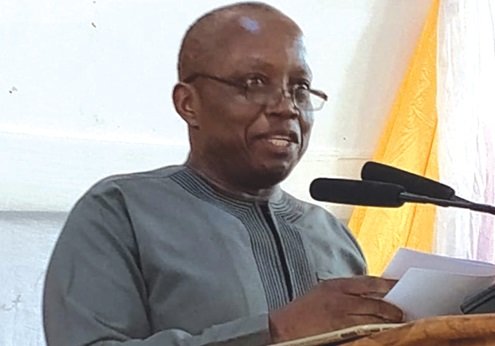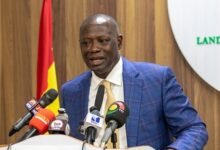
The former Auditor General, Mr Daniel Yaw Domelevo, has charged internal auditors to be proactive in risk management, rather than being reactive.
“Develop a comprehensive risk management plan ahead of time, rather than react to issues as they arise,” he said.
According to him, risk management involved anticipating challenges like funding shortages or political interference, and developing mitigation strategies in advance.
He said this at the closing ceremony of the IAA’s annual conference in Accra yesterday.
It was under the theme, “Consolidating Democratic and Accountable Governance in Ghana: Role of Internal Auditors”.
He expressed the importance of internal auditors and the compensation committee identifying and planning for potential risks facing different public institutions, especially during politically sensitive periods like elections.
Mr Domelevo said internal auditors should engage in collaborative risk management efforts across the public sector, adding that, risk management should be a collective, team-based effort rather than the sole responsibility of the risk officer.
“Internal auditors have an important role to play in promoting accountability and transparency in public institutions, by identifying and addressing corruption and mismanagement risks,” he said.
Mr Domelevo advised them to explore alternative funding sources, such as development partners, that may be willing to support the institution’s activities if government funding was limited due to political factors.
Speaking on the role of the judiciary in effective financial and accountable governance, a senior lecturer, School of Law, University of Ghana, Dr Abdallah Ali-Nakyea said ensuring accountability and good governance required a strategic approach.
He said ensuring that financial governance remained accountable and transparent was not just a theoretical concept; but required concrete actions and resources.
To achieve that, he said, there was a need for a robust approach to both testing and implementing good governance practices.
“One of the crucial steps in this process is the provision of adequate resources and training for those involved in financial oversight. By equipping these individuals with the necessary knowledge and tools, we can enhance their ability to manage and oversee financial activities effectively,” he said.
Moreover, Mr Ali-Nakyea said the role of the judiciary in maintaining accountability could not be under stated.
“In commercial courts, for example, we are allowed to bring in two independent experts to assist in guiding members through complex financial matters,” he said.
This support, he noted aided in ensuring that the judiciary could make informed decisions and uphold high standards of accountability.
He said the foundation of good financial governance laid in its ability to adapt to changes and uphold accountability,
“By continually improving our systems and providing support where needed, we aim to foster an environment where effective governance can thrive,” he said.
BY AGNES OPOKU SARPONG







